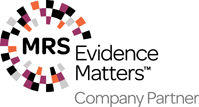Introduction
If you are currently thinking about surveying your customers or employees you are probably thinking about a range of questions to ask them about how they interact with your organisation. These questions are often best asked as statements where respondents can rate their satisfaction or agreement level (likert scale). In a typical customer survey these statements often cover areas to do with products, service and brand. We call these key touchpoints in the customer journey. An employee survey might include statements to do with management, leadership, rewards, training, career development etc.
These types of statements are extremely useful for analysis purposes and can help us identify the strongest and weakest area of a business. Statements can be compared using mean scores or top two box ratings which can be easily communicated throughout the organisation. This approach also lends itself well to sub-group analysis whereby we can compare the scores of different demographic groups and identify significant differences.
The survey results will allow us to understand the highest and lowest scoring statements in the survey. However, the results alone will not tell us how important these statements are in driving customer satisfaction or employee engagement. Therefore we need to calculate the relative importance of each statement. This type of analysis is called linear regression.
Linear regression (Key Driver Analysis)
Linear regression is a statistical process for estimating relationships between variables. It measures how the typical value of one (dependent) variable changes when any one of the other (independent) variables change. This gives insight into which independent variables have the greatest impact on the dependant variable. Variables which have a significant impact are known as key drivers.
Example independent variables (taken from a supermarket customer experience survey)
- Product range
- Staff friendliness
- Product quality
- Trusted brand
- Value for money
- Convenient location
- Clean store environment
- Easy of finding products in store
- Waiting times
- After sales service
- Staff knowledge
- Product innovation
- Store opening times
- Car parking
- Staff attentiveness
Example dependant variables
- Overall satisfaction
- Likelihood to recommend to a friend (advocacy)
- Likelihood to shop there again
Prioritising Actions
If we include 15 independent variables in a regression model we may only find that five are significant key drivers. This allows us to prioritise those five areas over the other ten included in the questionnaire. Model coefficients will let us know what impact those key drivers have on the dependant variable. The higher the model coefficient the greater the impact it has on the dependant variable. By mapping importance and performance on an impact matrices we can identify the key drivers which are currently under-performing. These areas are the 'low hanging fruit' or 'quick wins'. Any improvement in these areas will have maximum impact on increasing the dependant variable scores.
So if your goal is to maximise customer satisfaction you need to identify which key drivers of satisfaction are underperforming relative to other areas of the business. For example, if store waiting times are identified as a key driver of satisfaction but score relatively low in the survey management may need to consider developing a queue management system.
Adding Insight to Action
When formulating strategies to action priority areas is it useful to read through relevant customer comments or run a focus group on the topic. This qualitative approach will help management develop the most effective strategies and add an extra layer of insight to decision-making.
Final Word
The results of a survey are far more likely to be actioned if management are 100% confident about what the results are telling them. Key driver analysis is a robust methodology to help prioritise actions and ensure your organisation maximises its satisfaction ratings. And as we know significantly improving customer satisfaction or employee engagement leads to greater business growth, efficiency and commercial success.
Thanks for reading. For more information please contact:-
Scott Owens CMRS Dip (MRS) BA (Hons)
Robust Insight Limited
Regent's Court, Princess Street, Hull, HU2 8BA
Website: www.robust-insight.co.uk
Email: This email address is being protected from spambots. You need JavaScript enabled to view it.
Tel: 01469 640558
Mob: 07825 269235
Skype ID: scott1895







